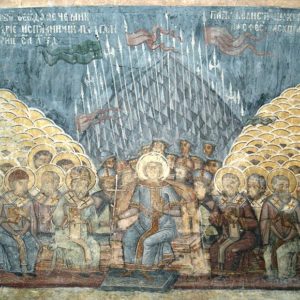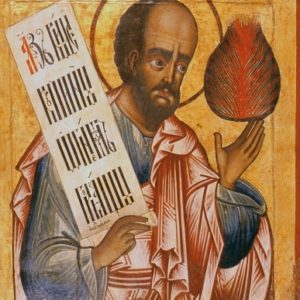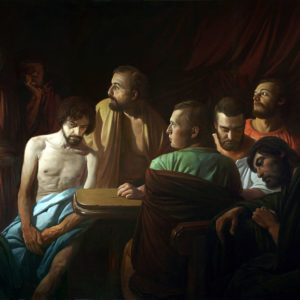Hint: the critical question is, “Were any of the groups that broke off from the visible Church in the first millennium correct to do so?” Here’s why.
Category: Uncategorized
Is it Blasphemy to Speak Against the Saints or the Church?
The Catholic Church claims that it is blasphemous to use the name of the Virgin Mary or the Saints in vain, and Protestants are understandably uneasy about this. So is the Catholic Church right? Or is this claim itself blasphemy?
The Lost Verses of “O Salutaris Hostia”
Many devout Catholics are familiar with the hymn O Salutaris Hostia, but did you know that it’s part of a larger hymn called Verbum Supernum Prodiens, written by St. Thomas Aquinas for the Feast of Corpus Christi? It’s theologically rich and well worth reading, praying, and listening to.
Catholic Answers Live – Tonight!
Just a short note to say that I’ll be on Catholic Answers Live tonight at 6-7 pm Central (so 4 pm on the West Coast, and 7 on the East). The topic will be “The Resurrection and the Early Church,” so please feel free to call in with your questions! While we’re on the subject: this afternoon, I’m… Continue reading Catholic Answers Live – Tonight!
The Historical Case for the Resurrection
As we celebrate the Resurrection of Jesus Christ this octave, let’s talk about the case against the Resurrection. One of the most common reactions to the Resurrection is simply that the idea is ridiculous. But in fact, there’s strong HISTORICAL evidence for the truth of the Resurrection that has to be grappled with, regardless of your religious persuasion. Here’s a little bit of it.
Herod and Pilate—on Trial
It’s no coincidence that Herod’s life and Pilate’s are also intimately bound up with the other’s. St. Luke mentions that, after the trial of Jesus, “Herod and Pilate became friends with each other that very day, for before this they had been at enmity with each other” (Luke 23:12). And in each case, we might say that it’s really Pilate and Herod who get put on trial. Why? Because these two allegedly powerful men each have before them a man they personally know to be innocent, a man that they want not to execute. Whether they know it or not, this is the most important moment in each man’s life, the moment for which he will be remembered for all of history.
Why is Sin Such Damned Fun?
We’re about to enter into Good Friday, the day on which Jesus died for our sins. So what’s the deal with sin? It’s very easy to think of sin as fun, and virtue as sort of missing out on the fun for the sake of some future reward: a sort of Mardi Gras v. Lent contrast. Why IS such (literally) damned fun? And how do we respond to the charge that we’re just anti-fun?
Scripture, Tradition, and Hand-Me-Down Bibles
That’s a good starting place to talk about the relationship between the Bible and Tradition… and the way in which the Bible is itself a Tradition. Catholics and Protestants often talk past one another on this topic. Protestants tend to hear “custom or rule,” whereas Catholics mean “something passed on.” And it’s too bad, because you simply can’t have Christianity without Tradition.
Perseverance of the Saints: An Illogical Doctrine
Protestants who believe in the doctrine of “perseverance of the Saints” (that the saved can never lose their salvation) often point to 1 John 2:9 as support. There, St. John speaks of those who “went out from us, but they were not of us; for if they had been of us, they would have continued with us.” Here’s why it’s irrational to base belief in perseverance of the Saints on that verse.
The Cross and Purgatory
If you understand the message of the Cross, you’ll see why Purgatory makes sense but also why it’s appealing to want to deny it. St. Peter didn’t want to hear about Jesus being glorified through suffering (Matthew 16:21-22), and he didn’t want to hear about how he would be glorified through suffering, either (John 21:17-21). But as St. Paul reminds us, we have been made “fellow heirs with Christ, provided we suffer with him in order that we may also be glorified with him.” Our glorification is through the Cross (His and ours) or nothing at all.









